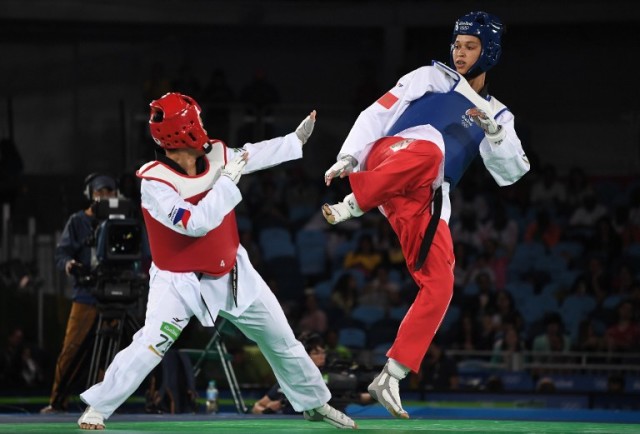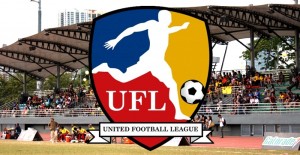
Morocco’s Wiam Dislam (R) competes against Philippines’ Kirstie Elaine Alora during their womens taekwondo repechage bout in the +67kg category as part of the Rio 2016 Olympic Games, on August 20, 2016, at the Carioca Arena 3, in Rio de Janeiro. AFP
RIO DE JANEIRO—Always considered a serious source of medal for the country in international competitions, taekwondo produced another big egg in the Olympic Games on Saturday after its lone entry, Kirstie Elaine Alora, failed to get past the repechage phase.
Not a single Filipino has ever reached an Olympic semifinal over the past eight Summer Games since 1988, when the sport made its debut in its birthplace, South Korea.
What is wrong with a sport that has enjoyed tremendous corporate backing over the years and doesn’t lack major competitions back home?
Grandmaster Hong Sung-chon, widely regarded as the grandfather of Philippine taekwondo, admits that the country’s national fighters have fallen behind their international peers in recent years. But he said his federation is doing everything to address the disparity.
“I accept that our players need to improve,” said Hong, who runs the Philippine Taekwondo Association as its vice president. “We will continue with our program. Even if we fail [in the Olympics], we carry on.”
He said Filipino jins have been “unlucky” in recent competitions, including the Manila Olympic qualifiers in June, because they lack confidence, especially when taking on experienced fighters.
“Some get scared (during overseas tournaments),” said Hong. “This is the reason why we need to develop their attitude and style.
“You see, this type of combat sport is 50 percent luck and 50 percent skill.”
To this end, Hong said they plan to send a regular stream of fighters to international meets. The PTA has 15 elite and 10 junior players under its wings.
But what’s really wrong with the sport here?
The answer may also lie in the fact that taekwondo continues to be seen by many Filipinos as a recreational or training sport, a very expensive one to people in the countryside who barely make ends meet.


